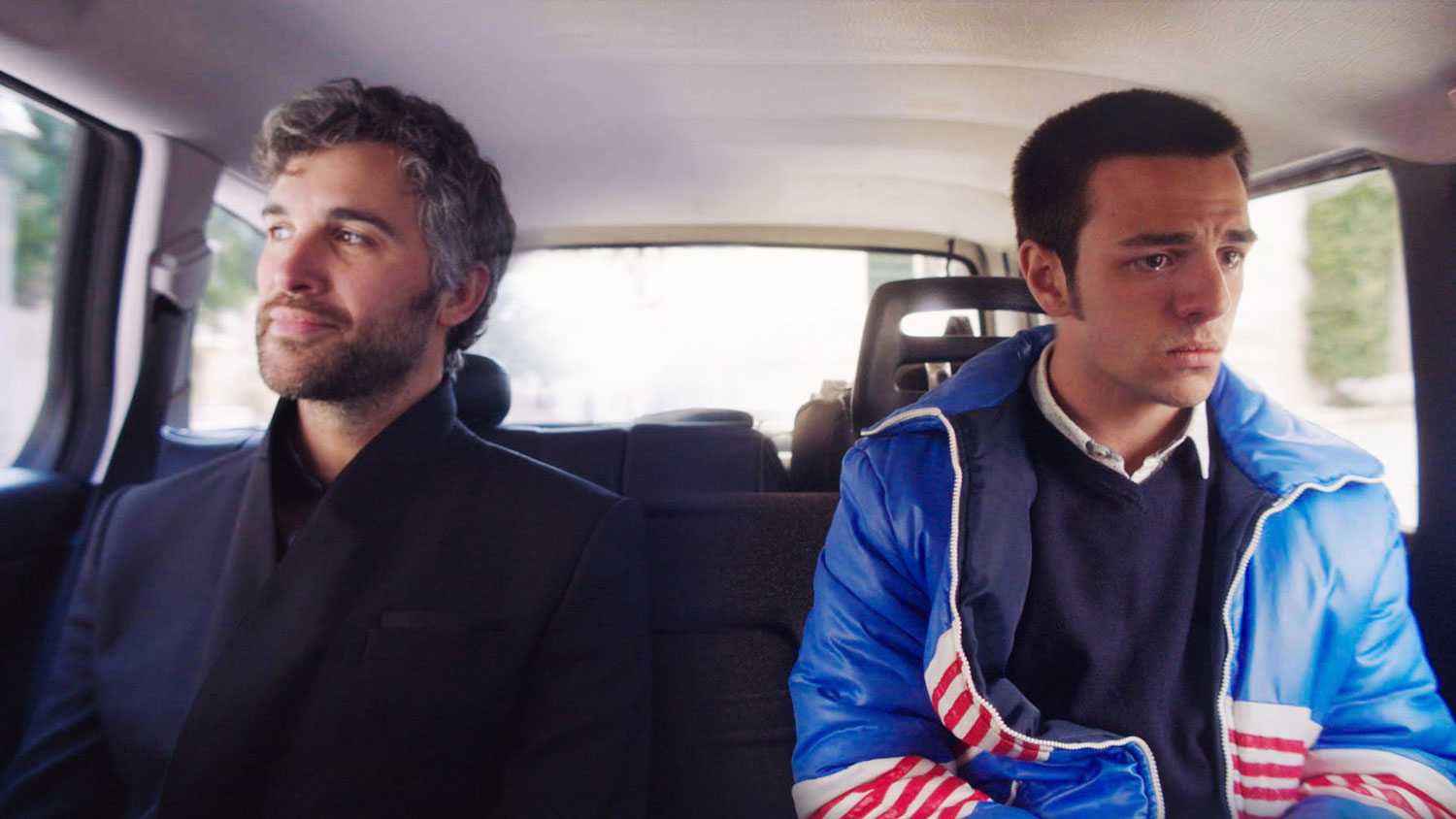
Juan Pablo Di Pace as Matias and Santiago Madrussan as Young Matias in a scene from "Duino." (Photo courtesy of Momento Films)
An LGBT+ film festival would not be complete without the ubiquitous chestnut that is the coming-of-age/coming-out movie, and OUTshine, which kicked off its fall edition north of the county line on Thursday, is no exception.
Young people discovering they're queer, and coming to terms with it, appears to be a popular trend in this fall's lineup, which is unspooling in Broward County before wrapping up next weekend in Miami. This is an expansion of the now twice yearly event that aims to draw more crowds, both in the fall and next spring, when the event is set to start in Miami and end in Broward. This past spring's event boasted a strong lineup, but it was beset by low attendance at several of its showings. Here's hoping the current team running the festival is able to spike up those audience numbers.
The Belgian production “Young Hearts,” a sweet if rather pat, you guessed it, coming-of-age/coming-out movie, was OUTshine's opening night pick, and while it fits the mold of the kind of feel-good crowd-pleaser the festival tends to select to start things off, this one has a little more going for it than past selections of its kind. Look for it when Strand Releasing puts it out in theaters at an as-yet unannounced date.
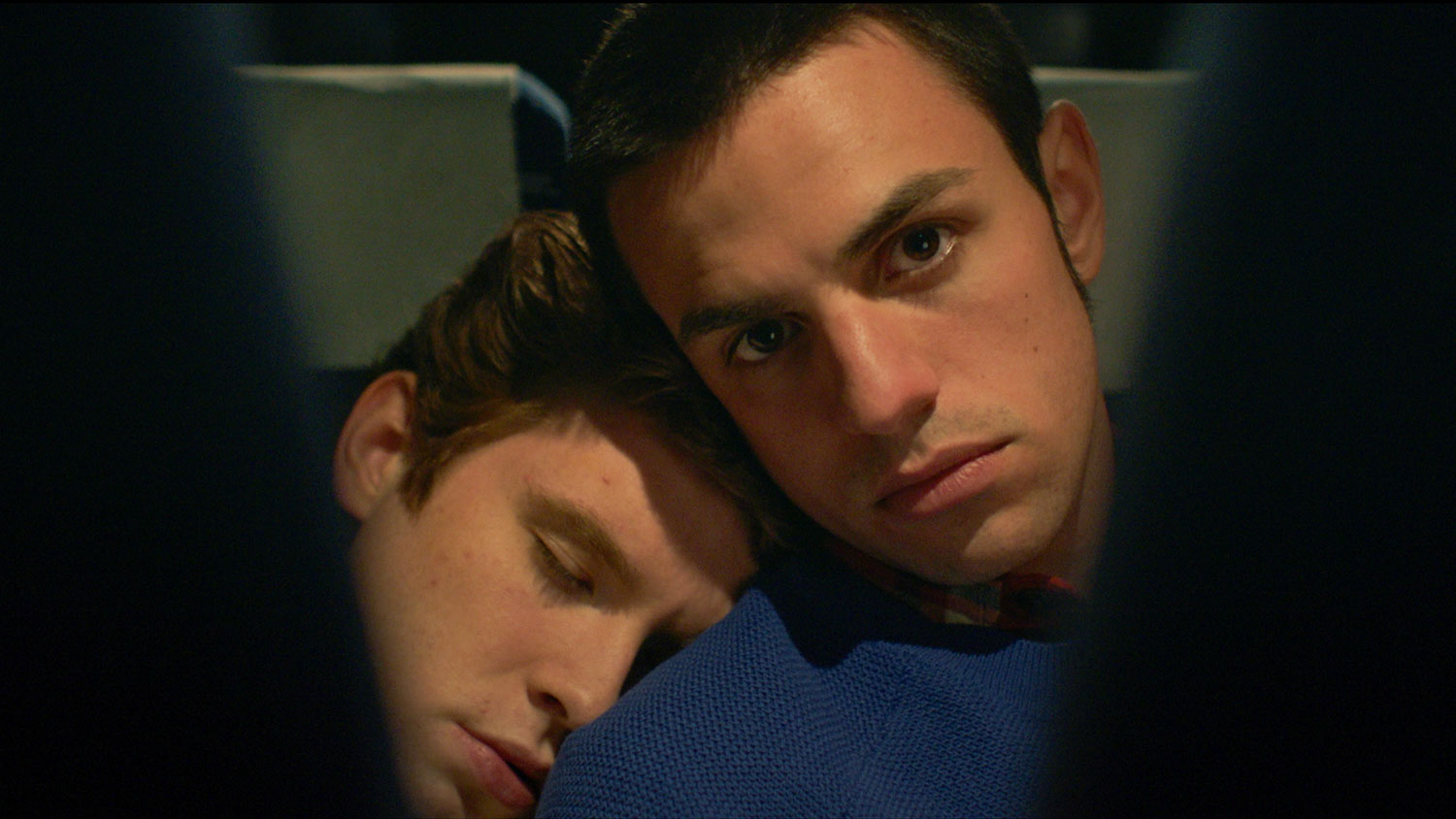
Oscar Morgan as Young Alexander and Santiago Madrussan as Young Matias in a scene from "Duino." (Photo courtesy of Momento Films).
If you're a more adventurous moviegoer, you might be wanting to see a change of scenery when it comes to the selections the festival chooses to spotlight as a gala selection.
After all, queer cinema can't all be coming out parties and heart-to-hearts with loved ones. Yes, “Young Hearts,” is tame, easy-listening fare, but that doesn't mean all coming-of-age/coming-out movies are built the same. Two other films showing over the next few days in Fort Lauderdale, one an international co-production with an Argentinian protagonist and the other a brooding Danish drama, take this familiar subgenre and do interesting things with it. Let's dive right in.
“Duino”: His outstretched hand is so close, and yet so far away. The year is 1997, and Matias (newcomer Santiago Madrussan) is a student from Argentina at the United World College campus located in Duino, a hamlet in Trieste, Italy. On this night, Matias is watching Alexander sleep. Alexander (Oscar Morgan), the charismatic Swedish lad with the River Phoenix looks and the unbridled charisma of a drama student. Matias reaches out his hand until it's millimeters away from his friend's face. And he c-c-c-c-can't b-b-b-bring himself to touch him.
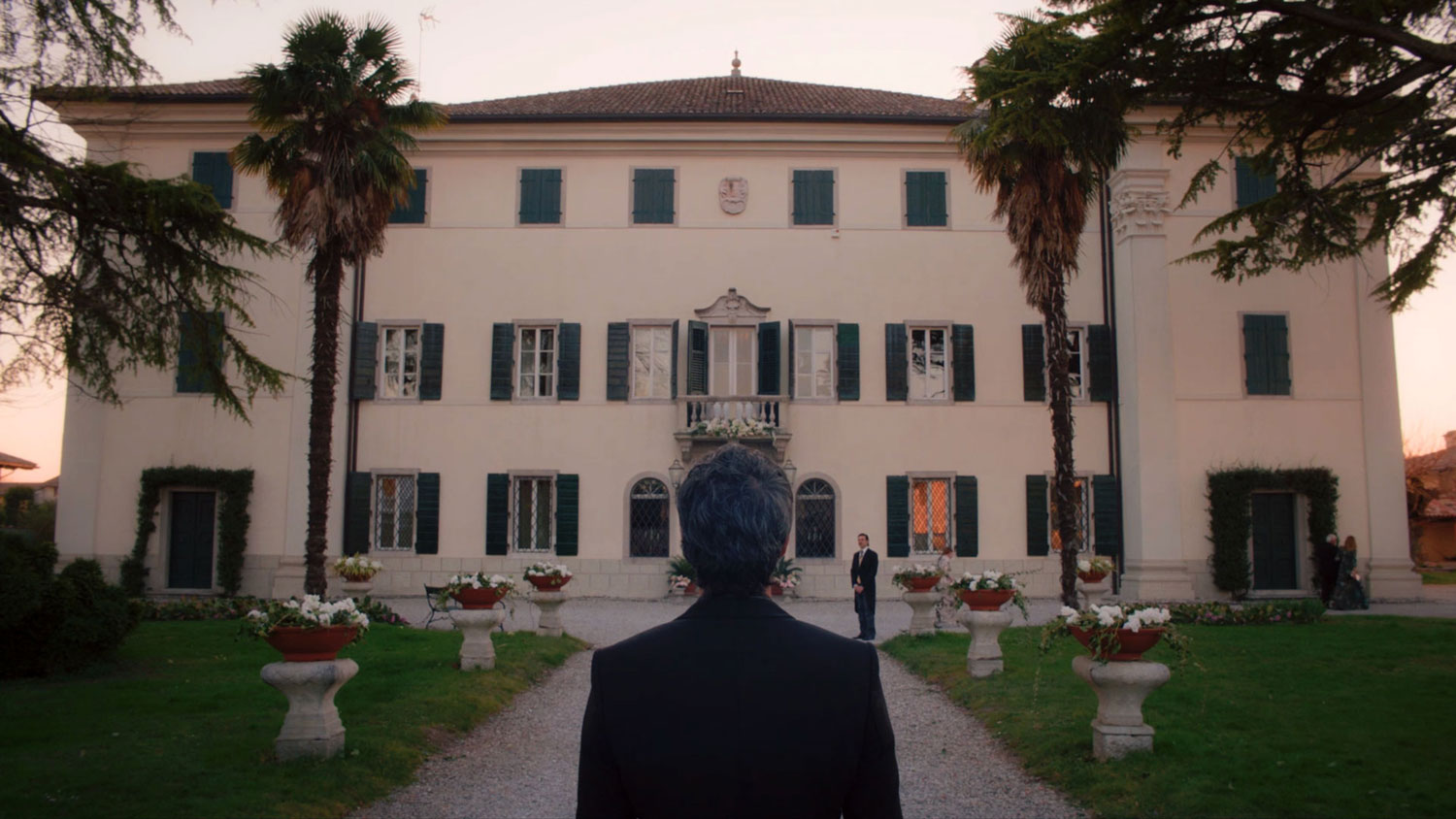
Juan Pablo Di Pace as Matias in a scene from "Duino." (Photo courtesy of Momento Films)
The angst emanates off the screen like an intoxicating pheromone, but “Duino” is not your typical tale of unrequited longing. Because this Argentina-U.S.-Italy co-production is also the story of present-day Matias (Juan Pablo Di Pace), a filmmaker struggling to finish a movie about his time at UWC and the beautiful Scandinavian boy who captured his heart and tied it in knots. Breathing down his neck to ensure Matias doesn't miss his deadline is his (hetero) best friend Paolo (Juan Cruz Márquez de la Serna), who happens to be the producer of Matias' film. Paolo thinks the footage they've shot is fine, but Matias is certain he's missing a crucial shot, involving his younger self and that outstretched hand.
To add another self-referential dimension, Di Pace, an actor and professional dancer who wrote and co-directed “Duino” with Spanish-born, Buenos Aires-based filmmaker Andrés Pepe Estrada, was inspired by events in his and Estrada's lives, down to a visit younger Paolo (Tomás Kirzner) pays to Matias at UWC, video camera in hand. One would think saddling a movie with so many meta layers would keep the characters at arm's length, but the opposite happens here. The film channels Pedro Almodóvar's “Bad Education,” another semi-autobiographical work where making movies plays a key role, in the way it shows how the act of creating cinema can shed new light on painful past events that would otherwise remain out of your grasp.
It's not easy to see a closeted person in his late teens deny who he is, to himself and to others, but Di Pace and Estrada stick to their period-accurate depiction of internalized homophobia. Initially, the filmmakers' sensibility makes “Duino” come across as more than a tad outdated, particularly in the scenes where young Matias has to deal with the reality that not only Alexander may not like him back the same way he does, but that Alexander's sister Kathrine (Julia Bender) is nursing a huge crush on him. Repressed feelings dominate the section of the film set in the Italian villa owned by Alexander's parents.
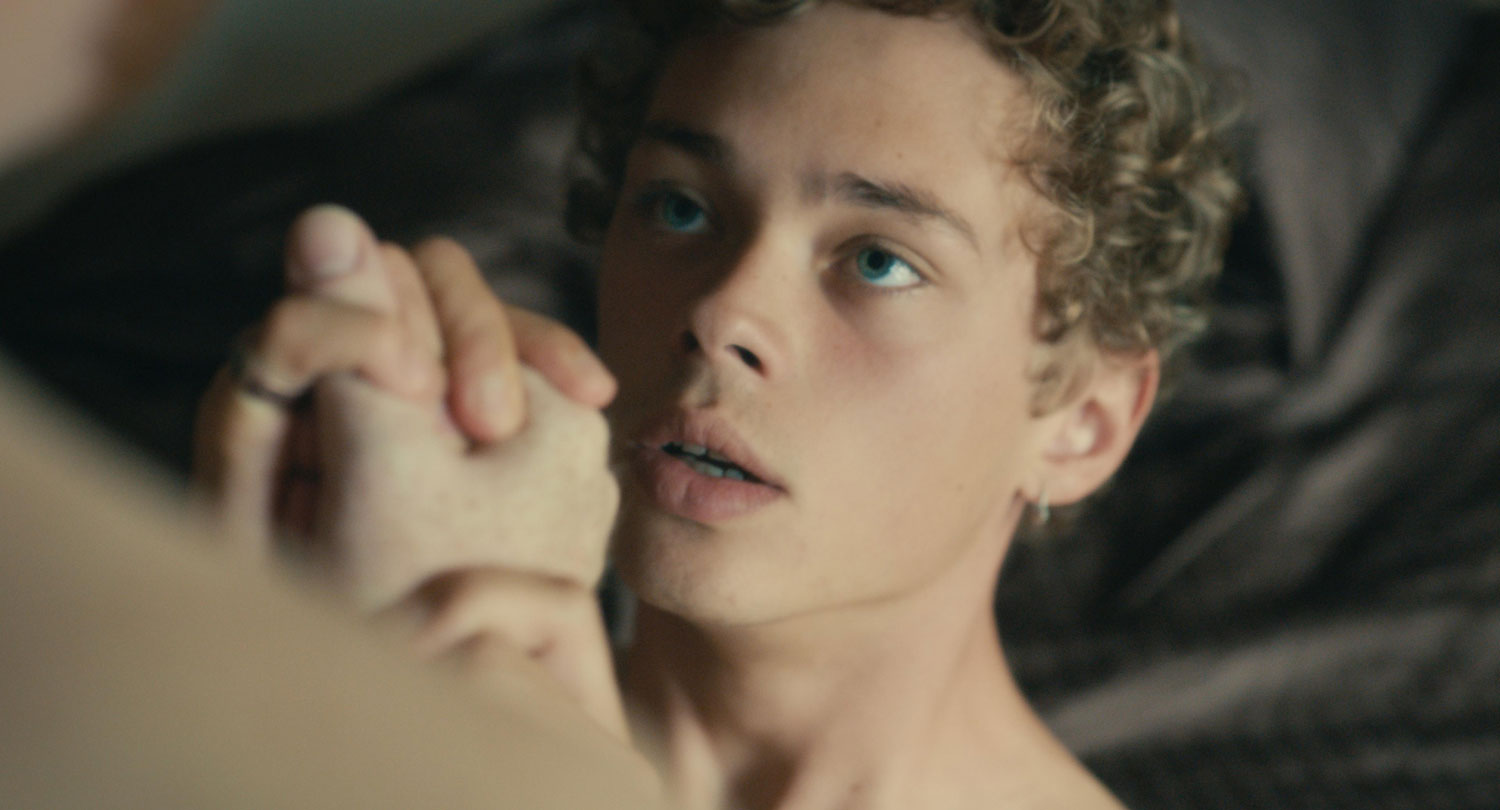
Noa Risbro Hjerrild as Tobias in a scene from "B.O.Y. - Bruises of Yesterday." (Photo courtesy of Stephanie Stål Axelgård, © Asta Film)
But as “Duino” continues to shift back and forth in time, its overly idealized depiction of the late 1990s gives way to hard-earned wisdom and insight. Then Di Pace and Estrada spring an eleventh-hour surprise, both for Matias and the viewer, and that's when the protagonist's quest for answers, and possibly even closure, truly becomes thrilling, a scavenger hunt for the soul.
Di Pace and Madrussan are both sensational, and Morgan takes Alexander's high-energy charm offense and runs with it. The film they headline may not break new ground in terms of subject matter, but it bridges the past and the present in all sorts of cathartic ways, especially for those of us who have been there, suffered through that. Life is never a straight line, Di Pace and Estrada convey with formal rigor and a penchant for bittersweet outcomes. And what lies at the end of that arduous winding road? Love, kind reader. Love in all its manifold mutations.
“Duino” screens Saturday at 7:15 p.m. at Paradigm Cinemas: Gateway Fort Lauderdale, 1820 E. Sunrise Blvd., Fort Lauderdale as OUTshine's Men's Spotlight Film.
“B.O.Y. - Bruises of Yesterday”: When life gives him lemons, Tobias goes out skateboarding. That's it, that's the movie, at least at first. And that's okay. More than okay.
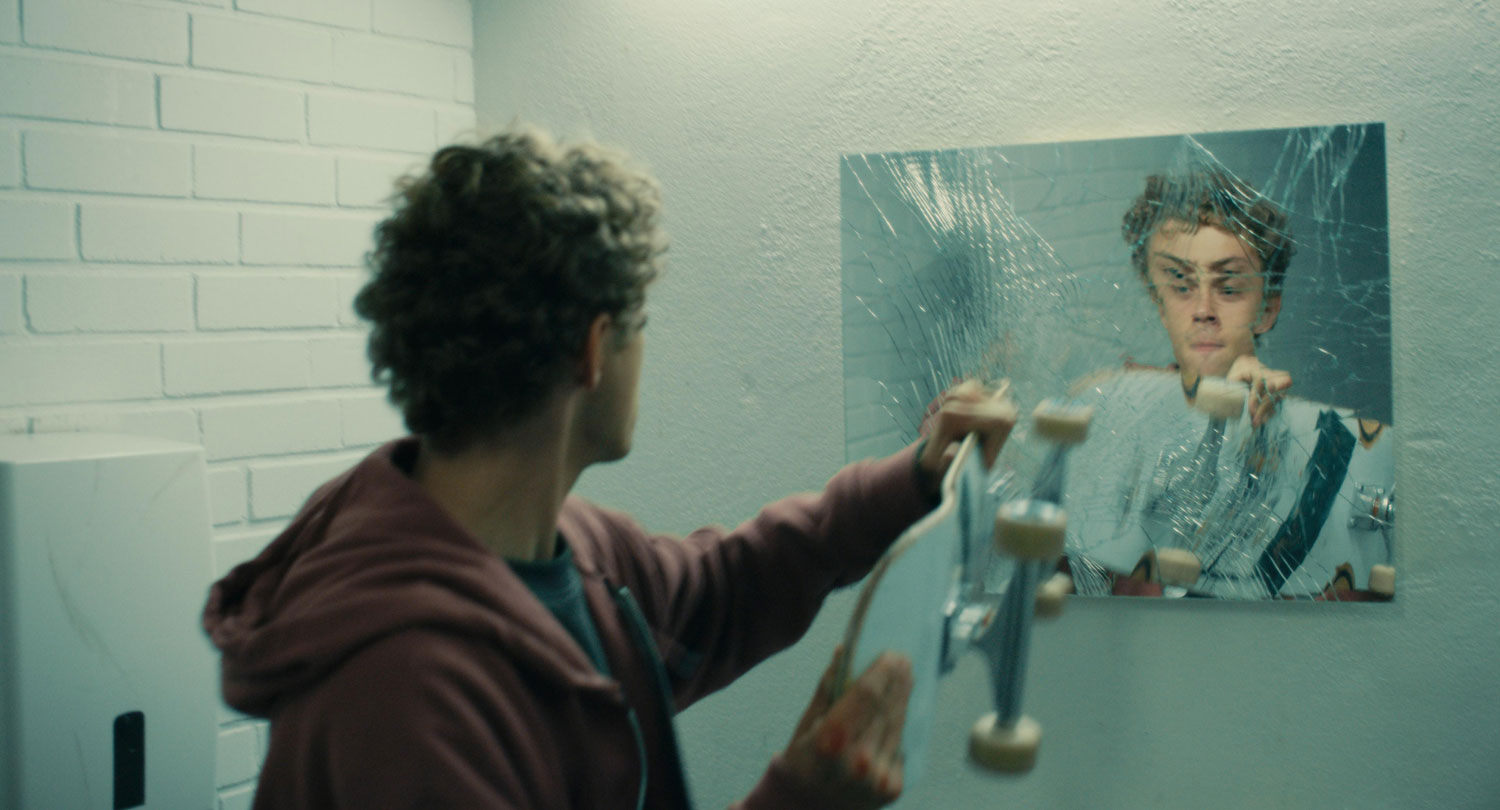
Noa Risbro Hjerrild as Tobias in a scene from "B.O.Y. - Bruises of Yesterday." (Photo courtesy of Stephanie Stål Axelgård, © Asta Film)
Wordless sequences, immaculately composed long shots and simmering hormones are the order of the day in this minimalist character study from Denmark. Summer has arrived, and Tobias (Noa Hisbro Hjerrild), a slim, curly-haired 16-year-old loner with daddy issues, is sent by his mother (Iben Dorner) to stay with his maternal grandfather (Jens Jørn Spottag) and grandmother (Bodil Jørgensen).
“Don't be angry with me. It's just for a few days,” Tobias' mom purrs before, she says, she has to head to Italy for work.
A likely story, as it turns out. Tobias soon learns Granny's dementia has taken a turn for the worse, as his gruff but caring grandfather offers the teen a chance to come help him at work installing glass. As Mom becomes harder and harder to reach on the phone, Tobias comes across two men who pique his interest: Aron (Alexander Mayah Larsen), a handsome, easygoing house painter, and Jonas (Jonathan Bergholdt Jørgensen), a standoffish, rather rude stranger he meets at a public bathroom.
If it's beginning to sound like “B.O.Y.” has a sturdy narrative, it doesn't, and part of its strength is the way director/co-screenwriter Søren Green leans on his images to help convey Tobias' solitude. The film thrives in its extended silences, when it's just a boy, his skateboard and desolate rural spaces where good-looking men might occasionally pop in.
The film's episodic structure leads Tobias to actually carry a conversation with Aron, which unearths the possibility to take things further. (It doesn't hurt that the teen has lied to his crush about his age.) It also leads him to discover Jonas is not cruising the restroom but working the area, if you catch my drift.
It's not until after the halfway point that we discover the depths of Tobias' despair and self-loathing. Green is able to separate the character's sexual orientation from the turmoil brewing in his mind, but this is when “B.O.Y.” takes a more familiar, plot-driven path into self-destructive behavior that, while well-rendered, isn't quite as arresting as the earlier parts of the movie, when it's closer to pure cinema.
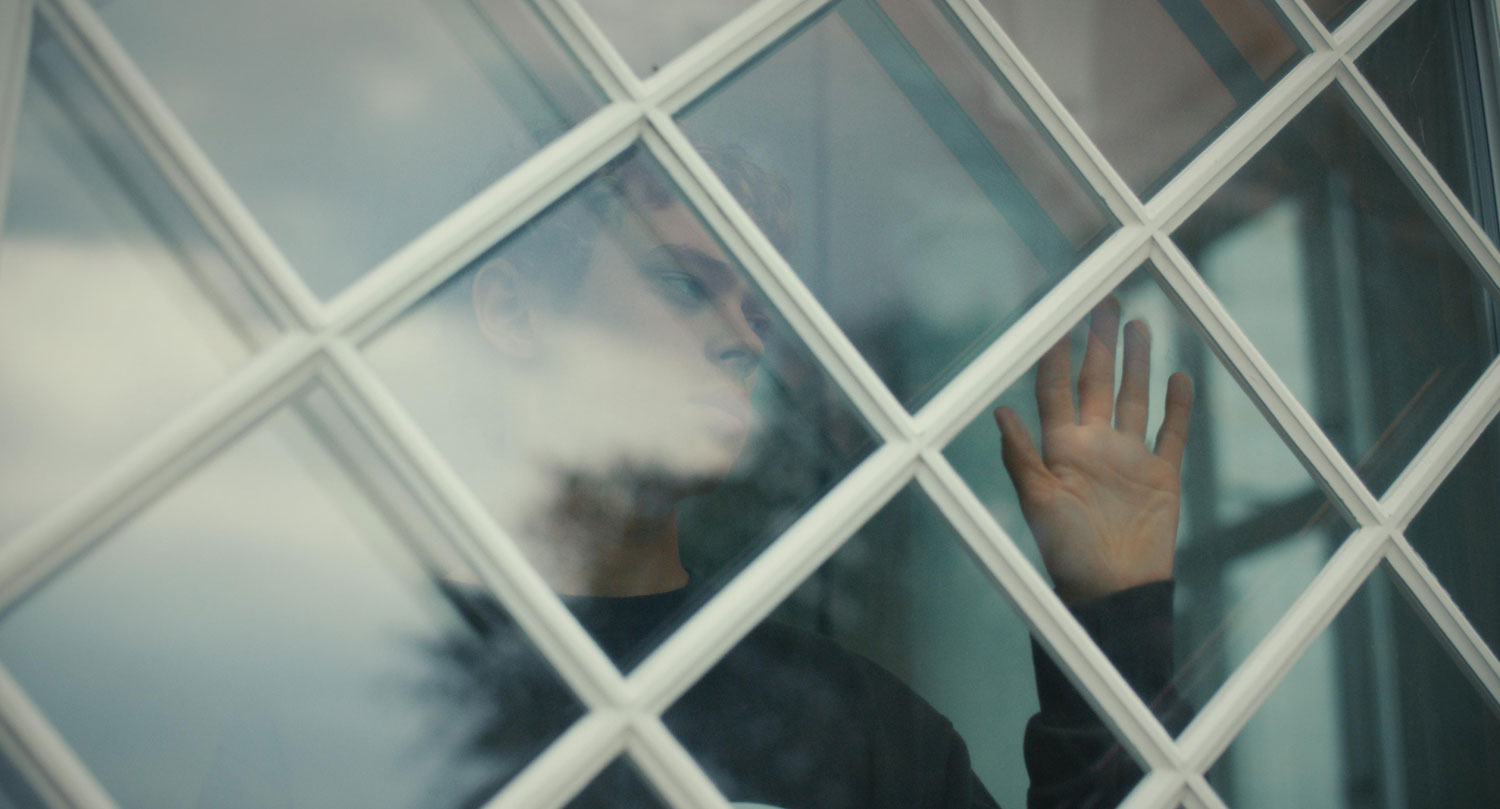
Noa Risbro Hjerrild as Tobias in a scene from "B.O.Y. - Bruises of Yesterday." (Photo courtesy of Stephanie Stål Axelgård, © Asta Film).
There's also a sex-negative streak here that rubbed this critic the wrong way. Green eventually delves into sex work, and his portrayal is on the brusque, visceral and one-dimensional side. It lacks the nuance of, say. “Sebastian,” the portrait of a male hustler/budding writer that was OUTshine's centerpiece selection back in the spring.
But thanks to Hjerrild's solid central performance, and Green's refusal to look away from the dark turns his protagonist's arc takes, “B.O.Y.” is an absorbing chronicle of a turbulent adolescence, a meltdown in slow motion where the anger and rebellious defiance are turned inward. It sinks its hooks on you.
“B.O.Y. - Bruises of Yesterday” screens Monday at 7:30 p.m., also at the Gateway, as OUTshine's Cocktails & Cinema event.
For tickets and a look at the entire lineup, which includes Miami showings on Oct. 25-27, go to outshinefilm.com.




